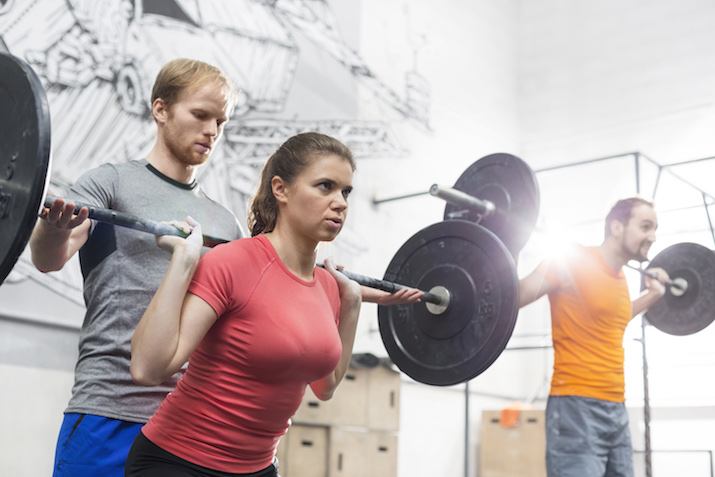One of the biggest questions I get from female clients is: “if i lift weights will i get bulky?” The answer is no.
Women don’t tend to get bulky and grow big muscles. Here’s an outline on what makes muscles grow.

To “get bulky” human body need to grow muscles. Hypertrophy or muscle gain depends on three basic factors:
Genetics
Because of genetics some people find it easier to build muscle, and some can run long distances than others. Thats just the way we are built. And this happens because of the muscle fibres that we recruit during exercise. People with predominantly fast-twitch fibres find it easier to gain more muscles compared to those with more slow-twitch fibres. However, slow-twitch fibres people can run long distances more easily and have better muscle endurance.
Gender
As for gender, men usually gain more muscle than women. This is simply because men have more testosterone and other hormones. They influence protein metabolism – break down of protein to make more muscle (Tipton 2001). This is why females do not “get bulky” the same way men do with strength improvements. So, ladies don’t think that lifting weights will make you to get bulky (Lewis et al. 1986).
Training Intensity
Training Intensity is the only naturally controllable factor excluding steroid use. For Hypertrophy to occur the muscles need to be used in a way which forces them to adapt. This adaptation is dependant on type of activity and muscle fibres used, the exertion on muscle, and the velocity (speed) during the contraction.
Muscle is built by progressive overload. Simply, this means you must continually overload the muscles with resistance, most commonly in the form of lifting weights. To make the muscles grow they need to adapt. if you constantly lift the same weight with the same amount of repetitions then they will grow to a certain extent but will eventually reach a plateau.
Tipton, K.D. 2001. Gender differences in protein metabolism. Current Opinions in Clinical Nutrition and Metabolic Care, 4 (6), 493-8.
Lewis, D.A., et al. 1986. Physiological differences between genders. Implications for sports conditioning. Sports Medicine, 3 (5), 357-69.



